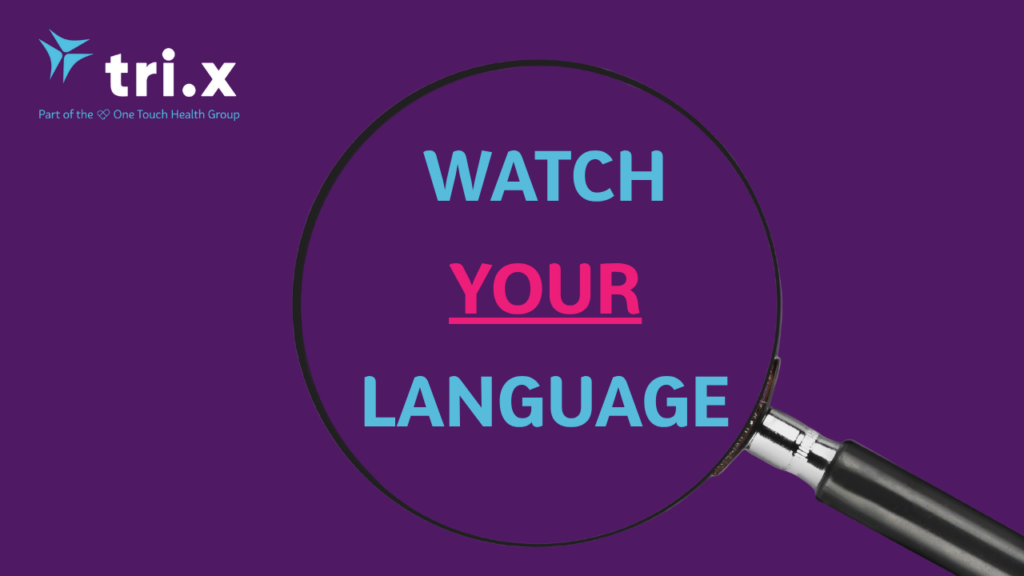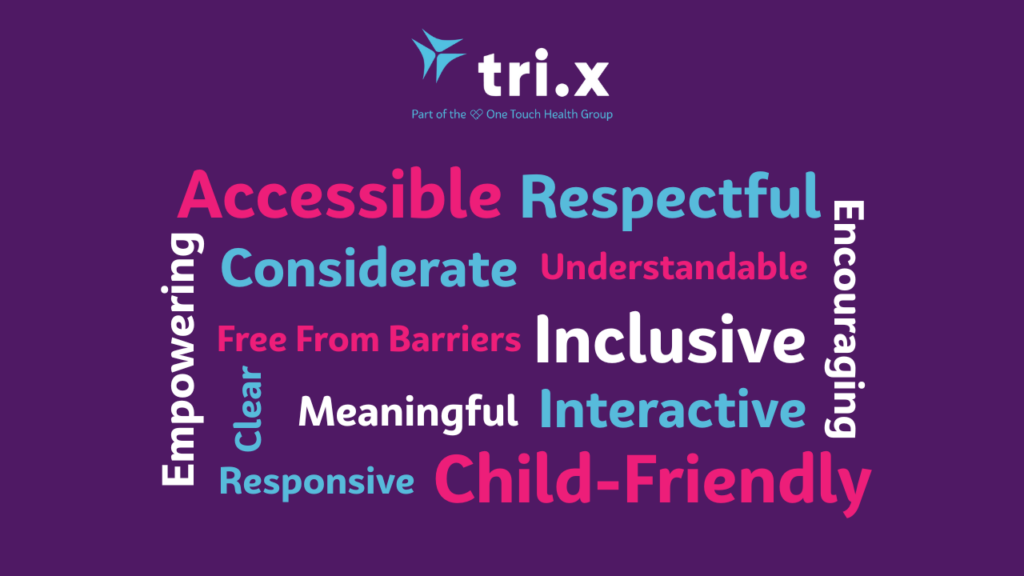The Importance of Language Used with Our Children and Young Adults
Language is a powerful tool that shapes our reality, influences our thoughts, and affects our interactions with others and the world around us.
As a result, it is essential that we understand the importance of the language we use when communicating with children, young people, and their families.
In this blog, we will explore some ways language can be used to help strengthen and empower conversations and reflect on whether the language we use is truly serving children and young people’s best interests.

The Power of Language:
We know that language is a powerful tool that shapes our reality and how we experience the world around us; however, when it comes to interacting with children and young people, it may not be suitable to use professional terminology.
From our experience working with children and young people, professional terminology can trigger and reinforce specific feelings, oftentimes without realising it. These individuals can feel confused and overwhelmed, and sometimes even embarrassed, as there is a lot of stigma attached to some of the terminology used by professionals.
Additionally, practitioners should be mindful of using trauma-informed language to show empathy and understanding, and to ensure that interactions do not unintentionally harm or re-traumatise children and young people.
It is important that practitioners recognise language that may re-traumatise, understand its impact, and explore more considerate alternatives.
This requires practitioners to adopt an intentional, thoughtful approach that considers the child or young person’s developmental stage, emotional maturity, language skills, cultural background, and their individual needs.
When we communicate in ways that are accessible and age-appropriate, not only do we ensure a high level of understanding, but we also build trust, create a safe space for expression, and support meaningful engagement.
 Professional Dialogue:
Professional Dialogue:
There will always be a need for professionals to use legislative and professional terminology in practice, but are we always conscious and considerate about when and where we use professional language?
Social work terminology can creep into every meeting, every report, and every encounter we have, which can have detrimental impacts on children and young people.
For children and young people, there is nothing more isolating than sitting in a meeting and hearing a professional speak in language or jargon that they do not understand, as it creates confusion and can also reinforce the power imbalance between the professional and the child.
It is essential that we take the time to explain the terms we use in ways that are age-appropriate and accessible for all individuals. Additionally, we must adopt an anti-racist and anti-oppressive approach to language, ensuring that what we say does not reinforce systemic inequalities or further marginalise individuals.
Language should always be respectful, accurate, and free from stereotypes or bias, recognising the dignity and identity of every child, young person, and their families.
Open dialogue and communication should be encouraged as they create safe spaces for children where they feel comfortable asking questions and expressing themselves without the fear of being misunderstood or judged.
As professionals, we must be willing to challenge language used that is harmful, exclusionary, disrespectful, or outdated, whether used by ourselves or others. By consciously making these changes, we can create a more supportive, dignified, and empowering environment for the children and young people we serve.

The language used needs to be:
-
- Accessible
-
- Child-Friendly
-
- Clear
-
- Considerate
-
- Empowering
-
- Encouraging
-
- Inclusive
-
- Interactuve
-
- Meaningful
-
- Free From Barriers
-
- Respectful
-
- Responsive
-
- Understandable
Listening and communicating effectively with children and young people is an essential part of building trusting and respectful relationships and can also be an opportunity to show that we’re human too.
Reflective Practice:
Language plays a significant role in shaping perceptions, fostering relationships, and upholding professional values, which is why it’s crucial that we use language that is respectful, empowering, and aligned with the ethical and moral foundations of our work.
This commitment to intentional and value-driven communication supports the core pillars of professional practice:
-
- Responsibility: Respectful language reflects our duty to uphold dignity and integrity in all interactions. It shows awareness of the impact our words have on children and young people, reinforcing our responsibility to create a safe and inclusive environment.
-
- Curiosity: Empowering language invites open dialogue and deeper understanding, encouraging exploration, diverse perspectives, and ongoing learning.
-
- Accountability: Being mindful of how we communicate demonstrates accountability, emphasising that we recognise the influence of our words and are committed to maintaining high standards, even under pressure or in complex situations.
Ultimately, using language with care and intention isn’t just a communication skill; rather, it’s crucial for our profession, and when done well, enhances the trust placed in us by others.
This blog was brought to you by the Lead Consultants at tri.x.
